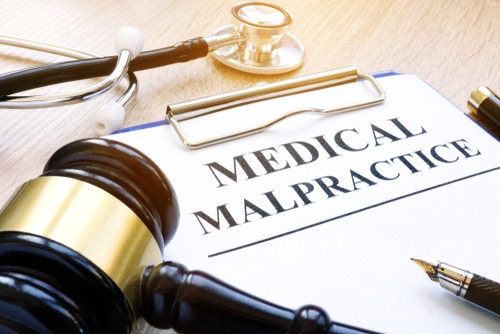
Jump To:
For a doctor or health care provider to commit malpractice, four conditions must be present. The party must owe a standard of care to the patient and he or she must violate that standard of care. The patient must suffer harm as a direct result of the party’s failure and his or her injuries must cause them to incur damages.
The preponderance of the evidence must show all four of these things to be true. In other words, the plaintiff must demonstrate that it is more likely than not that the defendant’s failure to uphold his or her standard of care is what caused the plaintiff to incur damages.
If you or someone you love was a victim of medical malpractice, you may have grounds to file a lawsuit and recover compensation. A lawyer from Newsome | Melton can help. For a free case evaluation, call us today at 888-261-5614.
A Health Care Provider’s Standard of Care
Doctors have a professional duty to each of their patients, and this duty requires them to uphold a certain level of care, known as a standard of care. The specific provisions of a doctor’s standard of care can vary quite a bit from field to field. A dentist may not have the same exact duties to a patient as an OB-GYN does, and an ophthalmologist does not follow the same patient protocols as a neurologist.
But in a broader context, the standard of care is the same for all doctors — they must provide a level of care that one would expect from a reasonable person with the same skills and training who is facing the same scenario. If a plaintiff can show that, more likely than not, a reasonable person would have been expected to provide a higher level of care, then the plaintiff can win a medical malpractice lawsuit.
The Reasonable Person Standard
The reasonable person standard is key to proving a doctor or health care provider violated his or her standard of care. But this standard by its nature is nebulous. How can anyone say with certainty what a reasonable person would have done or would have been expected to do in any given situation? Every situation in health care is unique, bringing to the table its own nuances and idiosyncrasies.
Indeed, the standard is difficult to define, let alone prove, for a given set of circumstances. But it is not impossible. An effective method to compare a provider’s actions to those of a reasonable person is to bring in an expert witness to testify. Diligent plaintiffs’ attorneys make frequent use of this tactic. The expert witness can review the situation and testify as to how he or she would have responded. Such testimony allows for a basis of comparison with the defendant and his or her actions.
Establishing a Cause-and-Effect Relationship
Demonstrating that the defendant failed to uphold his or her standard of care only gets you part of the way to proving medical malpractice. There is a difference between negligence and malpractice; a doctor can commit the former without being guilty of the latter. To prove malpractice, you must establish a cause-and-effect relationship between the defendant’s negligence and your injuries.
You can use a number of forms of evidence to create this nexus, including your medical records, lab test results, statements from other physicians, and even the defendant’s own statements.
Preponderance of the Evidence
The legal standard you must meet to prevail in a medical malpractice lawsuit is the preponderance of the evidence. That is, the evidence must tilt at least a fraction of a percent to your favor. If the evidence shows it is 50.1% likely that the defendant committed malpractice, you will win your case. At 49.9%, the defendant prevails.
This standard is easier to meet than the one used in criminal court, which requires the prosecution to prove the defendant’s guilt beyond a reasonable doubt. With the preponderance of the evidence standard, the jury does not have to be certain or even pretty sure of the defendant’s culpability. If they believe, based on the evidence, that your side of the story is slightly more likely to be true, they are instructed to find the defendant liable.
Legal Information - News Articles

A new medical malpractice law in Florida is drawing criticism from many groups who allege the new law violates the privacy rights established in the federal Health Insurance Portability and Accountability Act, Bloomberg Business Week reports. On July 1, the day Senate Bill 1792 went into effect, five trial attorneys filed lawsuits against healthcare providers.
Read More
The Law of Medical Malpractice in Montana: A Survey of Basic Considerations Montana medical malpractice law is among the most complex legal practice areas. The statutes, case law, and regulations governing medical malpractice law in Montana are highly technical. For instance, there are very strict and complicated filing deadlines that must be followed, or the injured
Read More